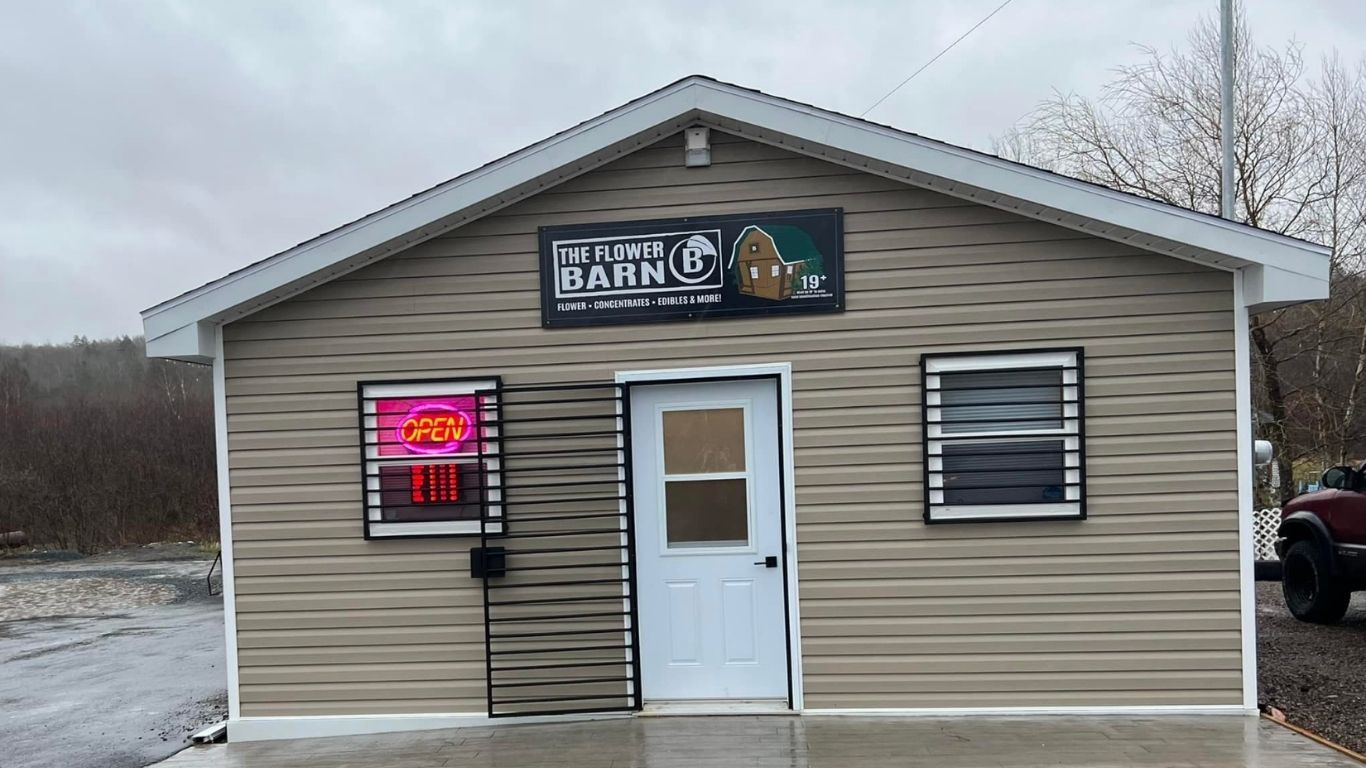
A Nova Scotia court has rejected a claim that the members of a First Nation can operate cannabis stores outside of provincial and federal cannabis regulations.
The defendants in the case argued that provincial regulations for cannabis stores in Nova Scotia do not apply to businesses operating within the territory of the Millbrook First Nation and that they do not need to pay provincial or federal duties on the products sold.
In a provincial court ruling from June 7, a judge said the defendant’s case did not make an effective argument for the existence of aboriginal and/or Treaty rights attached to their cannabis store operations, siding with the Crown, who argued the case was “frivolous” and a waste of the court’s time.
The defendant’s lawyer argued that the First Nation had a historical connection to cannabis and cannabis trade prior to contact with Europeans, that the development of federal and provincial cannabis regulations did not include consultation with the First Nation, and that Millbrook First Nation is on unceded territory.
The judge rejected the claim that a Treaty right to sell cannabis exists and rejected claims that there is evidence the First Nation had engaged in the cultivation or selling of cannabis prior to contact with Europeans.
However, the judge also said they welcome a “stronger” argument along the same lines.
“The matter cannot proceed on this foundation. I welcome a stronger one,” wrote Associate Chief Judge Ronda van der Hoek in her decision.
“The Court cannot allow the matter to proceed on such a foundation given its role to protect scarce judicial resources and in light of the Crown meeting the test to summarily dismiss, in the words of the Supreme Court of Canada, “manifestly frivolous” applications. This decision is not taken lightly…. It cannot be understated that decisions affirming and defining, or denying and restricting, aboriginal and Treaty rights are significant for the communities who advance them and Nova Scotians. The Court is aware that we are all Treaty people, but how the Treaties are interpreted must be based on a foundation that warrants consideration. At this time, that foundation has not been established for cannabis sales outside the lawful regime, and the existing regime applies to all Nova Scotians.”
In a similar ruling posted on the same day by Judge van der Hoek, she also rejected efforts to have charges thrown out related to the three raids of unlicensed cannabis stores in the province in 2021.
The defendants in the case heard in a court in Truro, Nova Scotia, attempted to make several arguments intending to have the charges dismissed, including claiming that the Crown could not prove that the cannabis was for sale or that one of the men arrested was not actually working at the store.
The judge rejected these arguments, noting evidence showing the cannabis products were listed as for sale, and the person in question was found behind the counter of the store when police arrived.
One defendant also argued that the Crown had failed to prove the elements of the offences are subject to the Kineapple principle, which prevents multiple convictions for a single criminal matter. The judge said they were willing to hear that argument at a later date.
Another related constitutional challenge by a band councillor from Millbrook First Nation, Chris Googoo, who has claimed a similar treaty right to sell cannabis, had his case dismissed earlier this year after the court found there was not enough evidence to proceed. Since the case was dismissed, the charter challenge did not proceed.
Nova Scotia RCMP officers raided Chris Googoo’s High Grade Smoke Shop, which sits on reserve land in Cole Harbour, NS, in December 2020 as part of a series of raids on several unlicensed cannabis dispensaries operating in the area. Googoo was arrested and charged with illegal possession and distribution of cannabis.
Googoo—who was represented by long-time cannabis rights lawyer Jack Lloyd—staged the constitutional challenge under section 35 of the Constitution Act, which protects Indigenous treaty rights in Canada. Specifically, Googoo is referring to the 1752 Peace and Friendship Treaty, which promises the Mi’kmaw “free liberty to bring to sale to Halifax or any other settlement within this province skins, feathers, fowl, fish or any other thing they shall have to sell.”
“Exercising our inherent treaty rights is something that all of our people should be doing freely, and not have to be harassed by any bodies of government,” said Googoo at a rally of supporters outside a Nova Scotia provincial courthouse in 2022, where he appeared to set trial dates.
Googoo was being backed by former president of the National Indian Brotherhood (precursor to the Assembly of First Nations) and one of the authors of section 35, Chief Del Riley, who has argued that the section grants Indigenous communities the authority to write their own cannabis regulation in parallel to federal and provincial law and to sell cannabis on reserve land. “You’re actually in a hell of a good position here,” he told members of the Millbrook community in April.
However, in 2019 Millbrook First Nations Chief Bob Gloade also said that such businesses are not supported by treaty rights.
“There is no treaty right protecting them in regards to selling, growing or distribution of cannabis whatsoever,” Gloade said. “It’s not a treaty or an aboriginal right because it does not state that anywhere. Our treaty rights basically focus around hunting and gathering not growing and distribution,” he said. “Individuals feel that it is a right and they’re extending it beyond the meaning of how the treaties are laid out in black and white and it puts us in a difficult situation.”
Since then, the Chief has changed his tune.
“Since that time, council has debated and discussed how to advance a cannabis strategy that is respectful of, and a benefit to, all community members, carried out in a way that prioritizes community sovereignty, safety, and well-being of everyone,” Gloade said in 2021.
“This is consistent with our inherent right to govern and our fiduciary duty to exercise jurisdiction over matters such as the community’s health and safety as a whole,” he said. “We continue to discuss the development of a cannabis regime and measures necessary for the Millbrook First Nation residents’ safety and enjoyment of life.”
Last year, the Assembly of First Nations called on federal politicians to “recognize First Nations jurisdiction over cannabis and remove regulatory barriers that exclude First Nations from the marketplace.” Thus far, federal and provincial governments have held that Indigenous communities can harmonize their regulations with Canadian law, and governments have attempted (to varying degrees of success) to help with that process.
Millbrook First Nation is one that finds itself in just such a position, and they have had a rocky relationship with the legal cannabis industry. Initially hopeful that legalization would be a source of economic opportunity for the community, in 2018 the band council invested $5 million in licensed producer Zenabis’ growing facility in Stellarton, NS, which opened in 2019 but was decommissioned in 2022, less than three years later. Financial statements show that Millbrook had lost more than $4.2 million on that investment, amidst a broader market downturn for public cannabis companies.
In 2022, Millbrook First Nation published a report following a community consultation exploring the idea of sovereign cannabis regulations, concluding that there was significant community support for “developing Millbrook laws and regulations.” A group called the Mi’kmaq Cannabis Association has also formed in the wake of the raids and has argued that “cannabis can be regulated informally by the customs and conventions of the Mi’kmaq people.”
An almost identical case in Cape Breton, where an Indigenous man was arrested for operating a dispensary on reserve land, was dropped by the crown suddenly in 2022, averting a planned constitutional challenge. “I’m kind of upset about it,” said defendant Albert Marshall. “I would have liked to have gone all the way to the end of it—right to the Supreme Court—to justify our inherent right to trade medicine, to trade plants.”
An Indigenous man in BC sued the provincial government in 2023, arguing that both federal and provincial cannabis laws ignore First Nations’ and Indigenous peoples’ jurisdiction.
Ongoing issue of jurisdictional authority
The issue of jurisdiction around cannabis laws is contentious in Canada as it relates to First Nations and Indigenous authorities. Canada’s Cannabis Act and Regulations provide the authority to regulate the sale of cannabis to provinces and territories. Many provinces, including BC, along with the federal government, have said that their own respective cannabis regulations are laws of general application, meaning they apply to all areas in those jurisdictions, including Indigenous land.
In 2020, BC’s Minister of Public Safety and Solicitor General, Mike Farnworth, said the province does not recognize such sovereignty in regard to federal and provincial cannabis regulations, but it is hesitant to enforce the law on First Nations territory out of fear of a court challenge.
Meanwhile, the New Brunswick government claims it is powerless to enforce its cannabis laws on First Nations land.
In 2023, the federal Senate Committee on Indigenous Peoples called for jurisdiction over cannabis possession, sale, and distribution in Canada.











